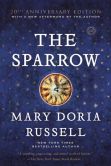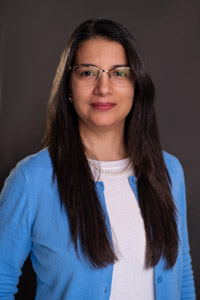I am not Hispanic, I am Puerto Rican – Isabel Schechter
I’ve heard people complain that calls for diversity are all about forcing quotas on stories, which strikes me as odd.
Isabel Schechter mentions the number of Puerto Ricans in the U.S. (almost five million), and in New York alone. I think back to things like Friends, which was ostensibly set in New York. And I don’t think we’re talking about clumsily or artificially inserting diversity into stories so much as we’re pointing out how so many of our stories have clumsily and artificially stripped that diversity away…
When I was young, I became obsessed with reading. I read everything I could find. I especially loved mythology, fantasy, and Choose Your Own Adventure books. They taught me that gods were blond, magicians were powerful, and boys could be astronauts. Oh, and everyone in the future was White.
When I was older, I read comics and novels. Women could now be superheroes, but everyone was still White. Except Storm from the X-Men. Storm was a beautiful Black woman in a flowing cape and tall boots. What was there not to love? It never occurred to me that my connection to her might have been rooted in the fact that neither of us was White. Until Storm, it had never occurred to me that I could be a superhero. I wasn’t White, blonde, or tall, and I wasn’t ever going to have boobs like that. Sadly, I never questioned why those were the criteria for being a superhero.
It wasn’t until I attended a feminist sf convention that I was exposed to strong, powerful women who were not all White. Some were Black, and every now and then, there was a Mexican. It was more representative of the world I lived in, but I never saw a Puerto Rican in sf. Given how many of us there are in the US, (hell, in New York alone!), I would think we could have at least one Puerto Rican character somewhere in the genre. If that character could have been a woman, too, that would have been even better, but hey, I was a desperate woman. I would settle for what I could get.
From that desperation came excitement when the TV show Heroes first started. A diverse cast! A Latino artist! Finally, a show that would include people of color as main characters and not just in the background, and they would even have superpowers! It turned out to be too good to be true. The list of fail in that show is far too long to go into detail, but my particular sore spot was the Latino representation. The Latino artist could only paint while high on heroin, and the brother and sister duo were illegal aliens. For bonus points, the sister happened to bring the plague with her, and of course, seduced one of the male Heroes in a particularly hot, passionate fashion. Because, you know, that’s how Latinas roll. Ugh.

Puerto Rico is a place where people look like me, where we’re the majority, not the Other. When I went to Puerto Rico with my mother a few years ago, I saw the house she grew up in and I went to Arecibo to see the telescope there. Most people can understand why I would want to see my mother’s hometown, but wouldn’t have guessed that I went to Arecibo because the telescope plays an important part in The Sparrow. I even drove by La Perla, the slum where Emilio grew up, and which is an important part of what makes him who he is, because I wanted to see if it was as awful as he described, so I could understand him a little better.
When I found out that Brad Pitt’s production company had optioned the movie rights to The Sparrow, I was terrified. What if they got it wrong (as most adaptations do)? What if they cast someone who wasn’t Puerto Rican (let me guess—a Mexican)? Hold on, this was Hollywood, what if they cast a White guy? What am I talking about? This is Hollywood—of course they would cast a White guy. Because, you know, all the good guys and heroes are White guys. I mean, Jake Gyllenhall was the perfect actor to play the Prince of Persia, right? And changing the entire cast of Avatar: The Last Airbender (except for the villain, of course) to White people made total sense given the source material. And hey, Scarlett Johansen’s acting ability makes her the obvious choice for Ghost in the Shell, doncha think?
Sure enough, Brad wanted to cast himself as Emilio. Shocking, I know. Or not. But seriously, how could he possibly think he was the right actor for that role? Emilio Sandoz is the only character in sf I can think of who is Puerto Rican, and yet again, some White guy was going to whitewash a great POC character and erase that which made him who he was. Hollywood was going to take from me the only character I could identify with, the only Puerto Rican in all of sf. As if the real Emilio never existed. As if I never existed.
Rather than have that happen, I would have settled for any other Latino actor to play the part-Mexican, Columbian, Dominican, Guatemalan, Cuban, insert-any-Central-or-Southern-American-or-Caribbean country-here, just please, please, please, not a White guy! Thankfully, the film option expired and my beloved novel and only Puerto Rican character were safe, and I could stop living in fear. For now.
I know that given the dismal shortage of representation of any kind of people of color in sf, I should be grateful for any Latino characters, and I am, but it’s precisely because Emilio is the only Puerto Rican that it’s important to me that he stays Puerto Rican. It’s precisely because in the future everyone is some mysterious monolithic “Hispanic” that I want the world to know that “Hispanic” isn’t enough. It’s not enough in real life, and it shouldn’t be enough in our literature and media.
There are all kinds of Latinos in the real world, and there should be kinds of Latinos in sf. All of us should be represented, and faithfully so. We don’t all come from one country—no Virginia, Latin America is not one country. We don’t all look alike-yes, really, some of us are blonde. We don’t all dance salsa—some of us prefer Bachata. We don’t all eat tacos—pupusas are delicious, you should try them. We are not all Catholics—the oldest synagogues in the western hemisphere are in Latin America. I could go on, and on, and on, but my point is that each of our cultures is unique, and everyone should get to see that. Just as not all White people insert-stupid-stereotype-here, not all Latinos insert-stupid-stereotype-here.
The number of myths and misconceptions about “Hispanics” is both hurtful and depressing. For a genre that is supposed to explore the universe, yet somehow can’t manage to explore the people living right here, right now, science fiction fails, time and time again, to be forward thinking. I am tired of never seeing myself represented. I am tired of reading about or seeing characters who are one-dimensional stereotypes. I am tired of White people trying to make it seem like they’re the only ones that do anything, and none of the rest of us even exist except in the background or as villains. I am tired of it all. And I demand better. You want to write whitewashed, one-dimensional crap? Feel free, just don’t expect me to spend my time or money on helping you push your agenda.
Isabel has been a fan since childhood and active in fandom for almost 20 years. She is Latina by birth, Jewish by choice, vegetarian by conscience, and uppity as necessary. As an event manager for a science museum, she is free to reveal her geekiness at work and not suffer any consequences. Isabel and her husband recently relocated to sunny California and so far, she has resisted the urge to go on Facebook and post pictures of herself wearing summer clothing in February while her friends back in Chicago are experiencing the Polar Vortex.






